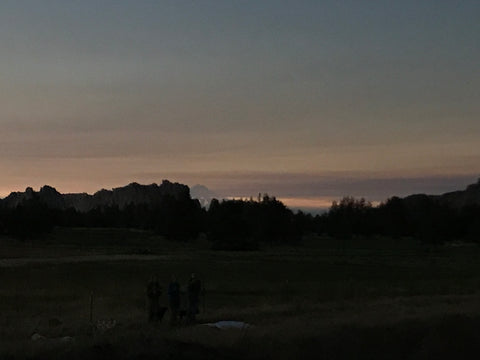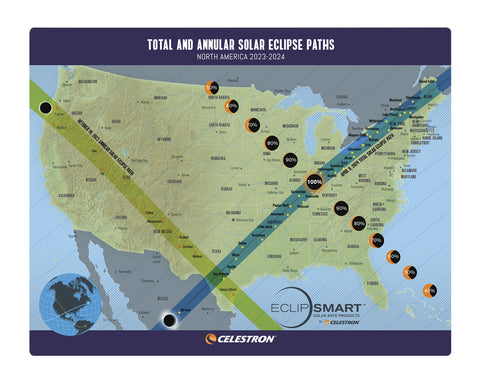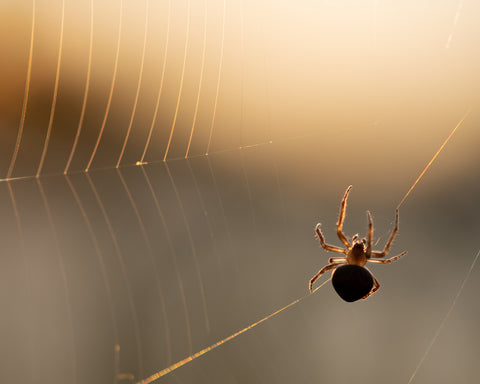 In 2017, Celestron asked The Bug Chicks to report from the field during the Total Solar Eclipse to see how it affected insects. We’d only been working with Celestron for about eight months, and I wanted to make a great impression—you know, prove that we could do Sky Stuff. Star Stuff. Space Stuff! I had “intrepid reporter” vibes. I had someone to film me. I even had a notebook.
In 2017, Celestron asked The Bug Chicks to report from the field during the Total Solar Eclipse to see how it affected insects. We’d only been working with Celestron for about eight months, and I wanted to make a great impression—you know, prove that we could do Sky Stuff. Star Stuff. Space Stuff! I had “intrepid reporter” vibes. I had someone to film me. I even had a notebook.
We went out to the desert in Eastern Oregon for huge cloudless skies and a clear view of the Sun directly in the path of totality. We had a lovely place by the river, with trees, birds, and BUGS. I was perfectly positioned to see what the insects would do.
You could say I was “totality” into it.

I was rocking the glasses.

I had pre-scanned the area and identified harvester ants with my FlipView microscope that were very active. While the eclipse was happening, I would be watching the ants and noting changes in their behavior. Other people could picnic and casually watch a celestial event. I had a job to do. I am a scientist.
Then, the eclipse happened.
This is where the assignment fell apart for me. I had never seen a Total Solar Eclipse before. After all my insect preparation, it became apparent that I was wholly unprepared for the magnificence of the eclipse itself. I underestimated how…life pausing it would be. That’s the only way I can describe it. It felt like everything around me that breathes stopped breathing for a few moments.

I got one photo of how dark the area got during totality.
I didn’t look at a single insect. I didn’t look down for the full, however-many-minutes it took. It would have been hard to observe anything because I was crying. People use the word “awesome” a lot. But I cried because the awe of witnessing the total eclipse overwhelmed me. (Turns out, there is preliminary science that differentiates between types of happiness tears. “Beauty tears” happen due to the awe of an event, a natural vista, or an artistic performance. I am choosing to believe that mine were beauty tears even though I am not a pretty crier.)
During the eclipse, I kind of forgot insects existed. And maybe that is an observation in and of itself. The Great Pause seemed to happen not just to the other people around me but to trees, birds, and bugs. Was it only my perception, or does nature settle and still during an eclipse?
A bit of research on the subject backs up my theory. While there is not much hard science on insect-eclipse observations, there is a great story of real data gathered about bees from Dr. Candace Galen from the University of Missouri during the 2017 eclipse. Using microphones placed in pollinator habitats, Galen and a team of researchers and contributors (including elementary school students) found that bees went completely quiet during the moment of totality. The microphones picked up the buzzing of the wingbeats. This means they stopped flying abruptly during totality, even though they were still flying as it got darker or lighter on either side of the event. As this happened, the wingbeats slowed, or flights got longer—and then stopped altogether! Bees are diurnal (active during daylight hours and inactive at night), so this makes sense.
Many anecdotal stories and speculations about insects during eclipses hinge on the light/dark phase. Will insects that are nocturnal start to be active? Will insects that rely on sunlight for direction (phototaxis) get confused and behave differently? Will singing insects start or stop singing when the light changes?
Another study that you can read here used large-scale radar to detect changes in bird and insect behavior, and they also found that the darkening of the skies during the eclipse stifled movements that had occurred during the two days before and after the event. However, at a few sites, the moment of totality created a burst of unexpected “low-altitude” activity, like the momentary flushing of birds and insects.
At this point, there are very few studies about insect behavior during eclipses. However, with the worldwide interest in declining insect populations and the phenomenon of celestial events, there are many opportunities to make helpful observations.
As for me, I have two more chances coming up soon—redemption! (The folks at Celestron were awesome about 2017. A lot of nodding and smiling and yeah-that-makes-total-sense-because-eclipses-are-amazing.)

On October 14, 2023, during the annular eclipse, it just so happens I will be on the west coast within range to witness it. October in Oregon is a tricky time for insects. However, it is spider season. So, I will be watching spiders on orbwebs as the event unfolds. Do spiders behave differently during annular eclipses? Let’s find out.

The Total Solar Eclipse on April 8, 2024, goes right by my house at 100% totality!!! So, I will have the opportunity for a redo. Early pollinators will be perfect to focus on, and since totality will happen around 3 p.m. where I live, it will be the warmest part of the day and my best chance during early spring to observe behaviors. I might try to record sounds and recreate the study that used microphones. This could make for a great lesson on how scientific evidence must be reproducible!
I’ll be ready—mentally and emotionally—this time. I make no promises about crying, though.
I’d love to hear any of your insect eclipse observations! Let us know on social media- we are @thebugchicks on Instagram, Facebook, Twitter, and Linkedin.
